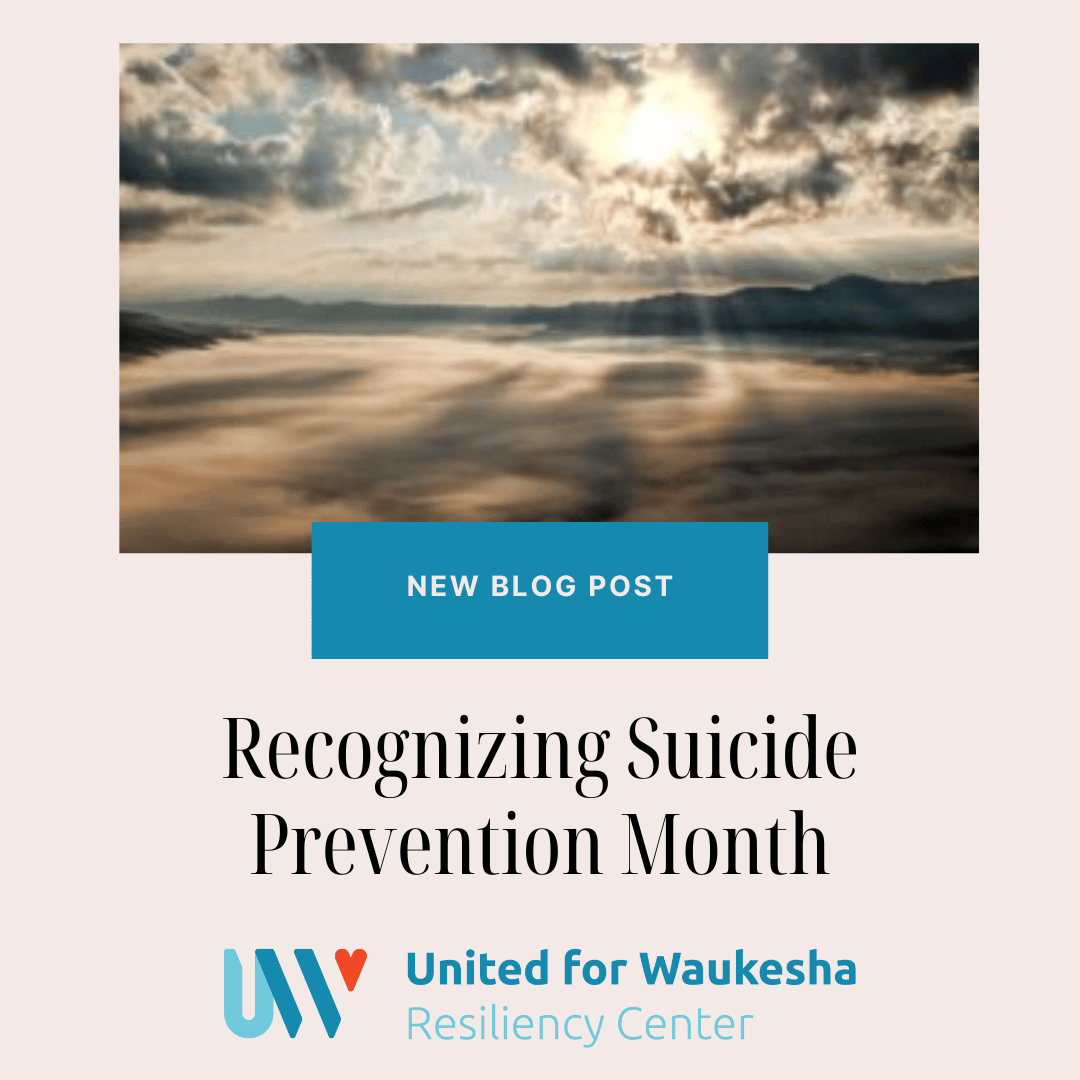Suicide can be a heavy topic, especially for those with personal experience. September is National Suicide Prevention Month, and September 10 is World Suicide Prevention Day. As an organization dedicated to mental health and wellbeing, we take this time to remember those affected by suicide, and we unite with our colleagues and partners to promote awareness of prevention strategies.
Tips and Thoughts for National Suicide Prevention Month
Spread the word about 988. As of 2022, 988 is now the national suicide and crisis hotline. This simple, standardized number will make it easier for those who are struggling to get the help they need quickly. Consider posting the 988 number in your workplace or sharing the information with a friend or family member. Check out 988’s #BeThe1To campaign, where they encourage six concrete actions to prevent suicide.
Know the signs. Some warning signs of suicide include talking about wanting to die, feeling like a burden or feeling trapped, self-harm behaviors that are getting worse, extreme sadness or rage, social isolation, and reckless behavior. While not every person considering suicide exhibits these signs, they can be an indicator that it might be time to ask for help.
Ask directly. Many people hold back from asking if a loved one is considering suicide because they fear that bringing up the topic will cause the person to harm themselves, but this is not true. Research suggests that asking in a caring way and acknowledging the issue may even reduce suicidal ideation.
Get trained. Mental health organizations may offer suicide prevention trainings like SAFETALK or Question, Persuade, Refer (QPR) at no cost to the community. NAMI Southeast WI and the Waukesha County Suicide Prevention Initiative periodically offer these, and you can check their websites to stay updated.
Build up protective factors for yourself and others. Protective factors can reduce the risk of suicide. These can include healthy coping mechanisms like journaling, affirmations, meditation or mindfulness, maintaining good exercise and sleep habits, creative pursuits like art or music, and talking to someone about your feelings. Other protective factors include problem-solving skills, supportive relationships with loved ones, feeling meaningfully connected among friends and at work or school, and reduced access to lethal means of suicide, such as guns or medications.
Check in with yourself. Take a moment to assess how you’ve been feeling for the past week or month. Sometimes knowing ourselves and when to ask for help is the hardest part. This graphic from the NIH provides a helpful list of mild and severe mental health symptoms and what to do about them: My Mental Health: Do I Need Help?
Suicide is a serious concern for us all, but it is preventable, and every effort is meaningful. If you or a loved one were affected by the 2021 Waukesha Christmas Parade tragedy and are experiencing some of these mental health struggles, please reach out to a UWRC service navigator or call the Waukesha Crisis Line at 262-548-7666 to be connected to services. If you are considering hurting yourself, call 988.

